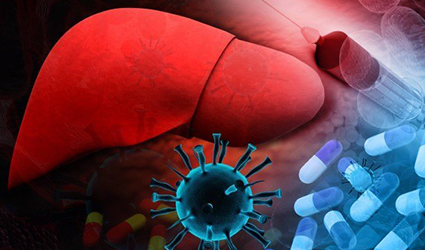What is Drug Induced Hepatitis?
July 16, 2018
Source: Stanford Healthcare
 1,117
1,117

The condition is termed as toxic hepatitis, where the exposure to toxins leads to liver inflammation. These toxins can be the result of an overdose of certain medicines.
The major function of the liver is to break down the toxins in the bloodstream and eliminate them. But constant or repeated exposure to various toxins could lead to liver injury and liver failure. The development of symptoms is totally dependent on the type of toxin.
Regular consumption of Over-The-Counter (OTC) medications like painkillers increases the risk of toxic hepatitis. The risk will be doubled if they are combined with alcohol consumption. Toxic hepatitis occurs as a side effect for certain medicines prescribed for treating other health conditions. Commercially available dietary, vitamins and herb supplements can also cause toxic hepatitis.
The symptoms of toxic hepatitis are similar to other liver diseases and include: fever, jaundice, abdominal pain, fatigue, loss of appetite, nausea, vomiting, dark colored urine and clay-colored stools are the common symptoms of toxic hepatitis. Complications include liver cirrhosis followed by liver failure.
There is no specific test to detect drug-induced hepatitis. By going through a patient’s history of drug consumption, a physician would conclude the type of hepatitis. Common tests like blood tests, liver function tests, X-rays, MRIs and liver biopsies could confirm the condition.
Treatment includes the early administration of therapeutic drugs that could reverse the effect of painkillers followed by a reduction in liver inflammation. The patients should be admitted and should receive IV fluid administration. If the liver is severely damaged, a physician may opt for liver transplantation.
By DduRead more on
- Things to Know before Buying Newborn Baby Incubators March 31, 2022
- Highly Resistant Food Poisoning Bug Responds to Antibiotics September 6, 2018
- Smartphone Based Diagnosis to Identify Mosquitoes Transmitting Infection September 5, 2018
- 3 Natural Plant Extracts Manufacturers on Drugdu.com September 4, 2018
- Shenzhen Chuanggan – Health Assessment Facility Supplier September 4, 2018
your submission has already been received.
OK
Subscribe
Please enter a valid Email address!
Submit
The most relevant industry news & insight will be sent to you every two weeks.



